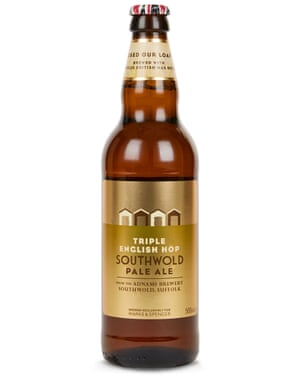Beer and sandwiches have gone together ever since Harold Wilson invited trade union leaders for talks at No 10. Now brewers have gone one better and created a beer made from leftover sandwich bread.
It is a tasty solution to the shocking daily waste of bread, with more than 24 million slices thrown away in Britain every day by consumers alone. Three new beers will soon be available at Marks & Spencer made from surplus bread from its sandwich factory that would otherwise be discarded or turned into animal feed.
Suffolk brewery Adnams is using the crusted “ends” of sliced sandwich loaves – frozen by M&S supplier Greencore in Northampton and then sent to the brewery’s headquarters in Southwold – to create the new beers, which are already on sale in some M&S stores and will soon be available to order online.
Making beer out of bread isn’t new – its history stretches back 4,000 years to a time when brewers and bakers worked together. The difference is that the new beers use bread that would otherwise go to waste.

Bread is made from grains such as barley, wheat and rye – exactly the same raw materials that are used to make beer. In this case, surplus crusts are mashed down into the mix and replace some of the malted barley traditionally used in brewing to create the Used Our Loaf range.
Each batch of the new beer will use 700kg of surplus bread with three times the quantity of malted barley. And using bread has an added benefit of helping to reduce carbon emissions from the energy-intensive brewing process.
The three Used Our Loaf beers are a triple English hop pale ale, a raspberry fruit beer and an Earl Grey pale ale. If the drinks prove popular with customers, the process will be rolled out across a wider range of beers.
The ingredient switch is similar to that of the popular Toast Ale, launched two years ago by Tristram Stuart, founder of the food waste charity Feedback. Stuart was inspired to use leftover bread to make beer by a Belgian brewer who follows the same process. Toast Ale is now brewed in the US, South Africa, Iceland and Brazil. All distributable profits go to Feedback to help end food waste while its original online open-source recipe – which replaces a third of the malted barley with bread (equivalent to one slice a bottle) – has now been downloaded 30,000 times.
Richard Applegate, an M&S beer technologist, said: “Consumers who are fans of beer will be familiar with Toast Ale, and we wanted to find a way to use the surplus bread from our sandwiches in a more useful and environment-friendly way.”
M&S launched pre-packaged sandwiches in Britain in 1981 and now sells 92.7 million a year, of which 72.4 million are conventional sandwiches and the rest baguettes and wraps.
According to official figures, about 10 million tonnes of food is wasted annually in Britain, in homes and in the commercial sector. Bread is one of Britain’s most wasted foodstuffs, with an estimated 44% thrown away because people do not get around to using it in time and worry it is stale.
Fergus Fitzgerald, head brewer at Adnams, said: “Making malted barley is an energy-intense process, therefore by using bread this reduces the carbon footprint; the saving from the three new beers is an estimated 1.2 tonnes of carbon dioxide.”
Toast Ale notably works with Wold Top Brewery in North Yorkshire, one of the UK’s most sustainable breweries. And it recently became the first UK beer company to certify as a “B Corporation”, joining a global movement of people using business as a force for social good. A B Corporation is to business what Fair Trade certification is to, say, coffee or organic certification is to milk, and means the company meets rigorous standards of social and environmental performance, accountability and transparency.
Meanwhile, the brewery has launched a new batch of beer brewed with surplus bread from the EAT sandwich chain.
“It’s great that bakeries and retailers are teaming up with social enterprises and charities to stop so much food being wasted,” said Chris Young of the Real Bread Campaign. “But the real problem lies with the big industrial loaf manufacturers and the supermarkets. We’d like to see far less surplus being generated in the first place.”